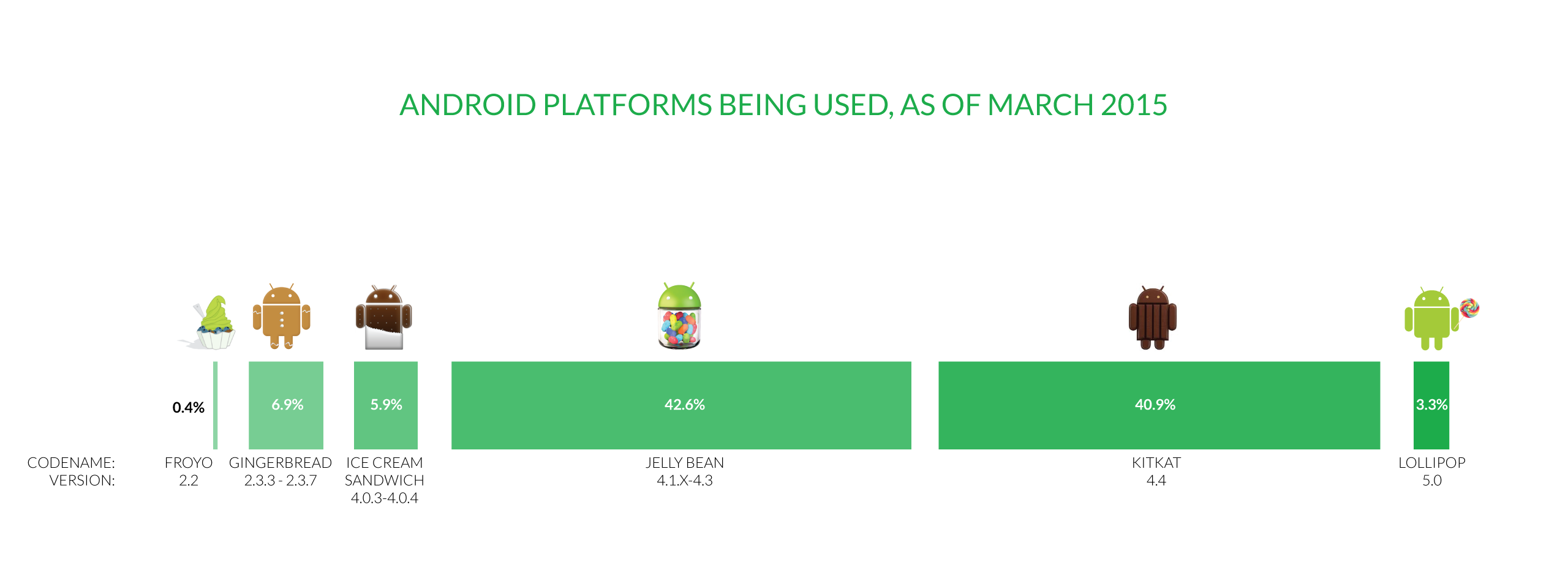Fragmentation – a dirty word in a land filled with Android handsets of all shapes, sizes, and hardware. No matter how anyone
spins it, it is still alive and well, and causing irritating issues to both developers and BYOD (bring your own device) companies. If you are unaware of what exactly "fragmentation" is, here's the gist of it – the market is currently saturated with all sorts of Android handsets – old ones, new ones, low-enders, midrangers, and flagships, all having their specific hardware kinks and, more importantly, running different versions of Android. This complicates things for developers, who have to build their apps for many different systems, and for user security, especially since there has been a major flaw found on Android versions below 4.4 KitKat.
Reportedly, it is the security issue that plagues Jelly Bean devices that caused a “major corporate user” to ban any Android handsets from being used by its employers. A representative of the company told iTWire that it just prefers to support iOS 8.x and Windows Phone 8.x handsets, instead of “coping with managing the plethora of android devices and apps”.
It is a fact that there have been malware-infected apps on the Play Store before, and that Jelly Bean is still the
most widely distributed Android build.
Google did say that it will not be fixing security flaws below 4.4 KitKat, but will leave that up to manufacturers (and we all know how that goes). On the flip side, the company seems to be making an effort to better the quality of content it has on its Play Store, as it has now implemented a new
review process for apps, but, unfortunately, the whole fragmentation issue doesn't seem to have an easy fix.
source:
iTWire via
WMPoweruser; image:
Dadaviz
Read the latest from Preslav Kateliev


Things that are NOT allowed:
To help keep our community safe and free from spam, we apply temporary limits to newly created accounts: